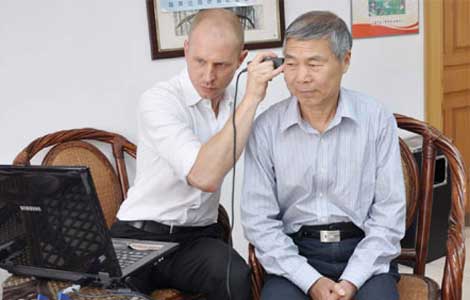For whom the PE bells toll
Updated: 2011-08-26 12:05
By Shen Hongbo (China Daily European Weekly)
The private equity (PE) market has been booming in China for several years and started becoming more appealing to investors after the financial crisis of 2008.

PE funds raised $3.023 billion (2.11 billion euros) in July this year through 20 investment deals (including initial public offerings) in China's capital market.
PE investors had reasons to worry this month as a downgrade of the US credit rating triggered a selling spree on global bourses. Institutions and private clients piling into China's PE market for high-risk returns should be aware of the significant changes and the possible negative impact triggered by the selloffs on the net worth of private equity funds.
China's PE market has changed considerably in recent years, due to the participation of State-owned enterprises and institutions. During the early stages of PE market development in China, local investments were made through the experiences learnt from the mature markets. As venture capital and private equity investments started making their way to China, the market's rapid growth also attracted more local participants.
For the past decade, both foreign investors and their Chinese counterparts have shown keen interest in high-tech, equipment manufacturing and consumer goods companies. With upside potential on returns and a favorable investment environment, China has also become the most attractive emerging market for a growing number of overseas investors.
By the middle of 2009, Chinese funds overtook their foreign peers in terms of deal sizes, with the State-owned enterprises enjoying a lion's share in the PE industry. Prominent PE deals included the one by Agricultural Bank of China, the nation's third-biggest lender by assets, when it launched a 15 billion yuan (1.64 billion euros) private equity fund to invest in high-growth sectors such as logistics and energy conservation and the Shanghai Automotive Industry Fund, which plans to raise 30 billion yuan. It is obvious that the State-owned enterprises will not only regulate the equity market, but also become the dominant players in the PE market.
Foreign PE firms, which have struggled to do sizable deals in China, are also facing intense competition from an increasing number of Chinese PE funds that are raising yuan and competing for many of the same deals.
The State-owned institutions hold several trump cards over international PE investors in China's PE market. Their ability to bring and raise sizable capital to the market will help them bag investment deals for technology upgrade and industrial structure adjustment.
The bearish capital market is also a big setback for many PE firms as investors start becoming more selective about investments. Hence State-owned institutions backed by the government are more likely to win their trust. From this point of view, State-owned banks and enterprises will continue to dominate foreign players, and contribute bulk of the investments.
Most of the State-owned equity companies are government financial entities that not only have access to the PE market but also to banks, insurance, trust companies and other financial services. Government entities that can offer such strengths and competitiveness will automatically have an edge over foreign players when it comes to large-scale investment projects. Big global PE firms such as Goldman Sachs and Carlyle Group have also not been successful in this regard in China.
Though the PE market in China began to change in June, only time will tell whether these changes are good or bad.
The author is deputy senior manager at the financial risk research center of China Cinda Asset Management Corporation.
E-paper

Blue economy gets a lift
Coastal areas of Shandong, Zhejiang and Guangdong to spearhead sector development.
The light touch
Long way to go
Outdoor success
Specials

Star journalist remembered
Friends, colleagues attended a memorial service to pay tribute to veteran reporter Li Xing in US.

Hot pots
Tea-making treasures catch the fancy of connoisseurs as record prices brew up interest

Hear we go
Polish Audiologist helps thousands of Chinese hear for the first time.
